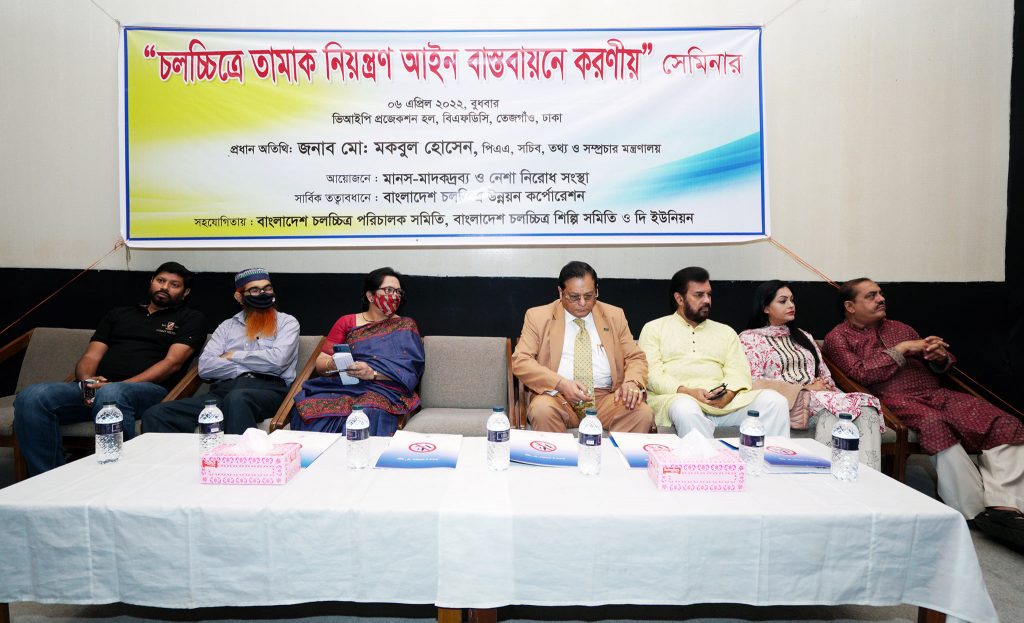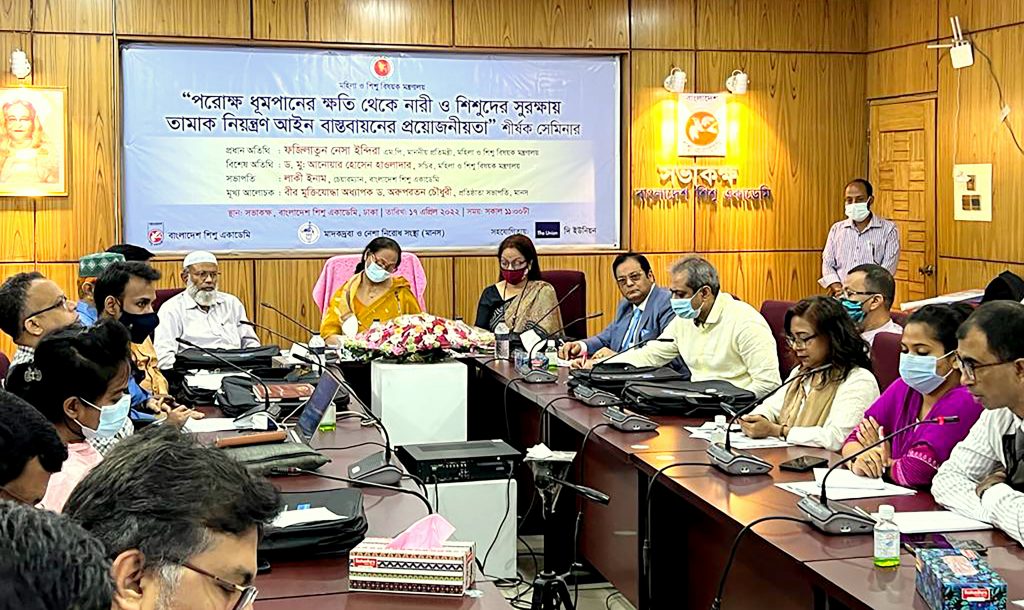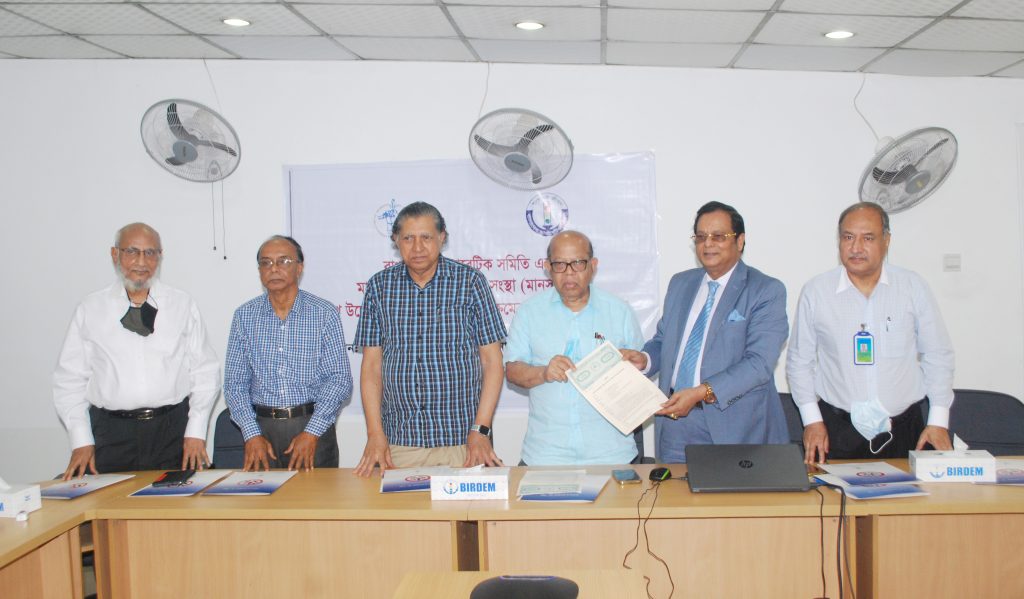Call to Eliminate Depictions of Smoking in Films for the Sake of Adolescents and Youth

Film industry professionals believe that 99% of characters can be portrayed without showing smoking, drug use, or other negative behaviors. They emphasized that directors, producers, scriptwriters, and actors must remain conscious of their social responsibility. To protect adolescents and young people, scenes involving smoking, drugs, and other harmful content must be avoided in films. Everyone should show respect for the National Broadcasting Policy and the Public Health Act.
This call to action came during a discussion titled “Say No to Tobacco and Drugs in Films” held on April 29 at the Bangladesh Film Archive Auditorium, organized by MANAS (Association for the Prevention of Drug Abuse). The event was chaired by MANAS founder and president, valiant freedom fighter Professor Dr. Arup Ratan Choudhury.
Distinguished speakers at the event included Ms. Masuma Rahman Tani, Managing Director of Bangladesh Film Development Corporation (BFDC); Mr. Md. Zahidul Islam, Director of the Department of Films and Publications; Mr. Arif Sadek, Director of the Bangladesh Film Archive; Mr. Md. Moin Uddin, Deputy Director of the Bangladesh Film Censorship Board; film researchers Dr. Islam Shafique and Abdullah Zahir Babu; journalist Nikhil Bhadra; and actor Danny Sidak, among others.
The event was moderated by Md. Abu Rayhan, Senior Project and Communication Officer of MANAS. The keynote presentation was delivered by Ms. Umme Jannat, Project Coordinator of MANAS, who shared insights from an observation survey conducted by MANAS on Eid-released films and OTT content.
According to the presentation, out of 60 dramas and films broadcast on OTT platforms, 46 violated the Tobacco Control Act. The observation revealed that scenes depicting smoking were most frequently performed by lead male characters (33 times), followed by lead female characters (19), villains (12), and supporting characters (21). The study covered content from five popular OTT platforms and found that six dramas and 40 films contained clear violations. Films streamed on Netflix had the highest number of scenes involving tobacco and drug use.
The program’s honorable guest, Ms. Masuma Rahman Tani, Managing Director of the Bangladesh Film Development Corporation, emphasized that film is one of the most powerful and widely embraced forms of entertainment. She underscored the crucial responsibility of artists and filmmakers to ensure that their work does not influence young audiences toward tobacco and drug addiction.
In his address, Professor Dr. ArupRatan Choudhury stated that a global war is underway against tobacco. Both smokers and non-smokers are victims of its harms. Due to the allure of tobacco companies, smoking among adolescents and youth is on the rise, often leading them toward more dangerous drug use. He urged for swift action to fully enforce the Tobacco Control Act in entertainment media and to develop specific guidelines for OTT platforms.
Speakers at the event pointed out that a section of the film industry is responsible for enticing youth into smoking by glamorizing it on screen. Even though some argue that smoking scenes are justified for storytelling purposes, anything that harms national interest and public welfare should be avoided. They called for stricter measures to ensure films are free of smoking depictions, particularly to safeguard children, adolescents, and young people.




